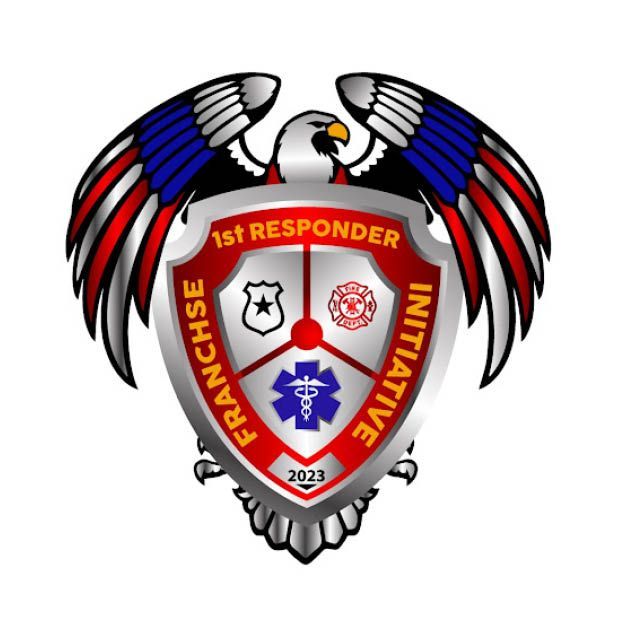Service Dogs: A Lifeline for First Responders and Veterans Battling PTSD
In 2023, the Pet industry in the United States is projected to reach a staggering $143.6 billion in sales. This figure encompasses various sectors, including pet food, supplies, veterinary care, grooming, and services. The industry's growth is a testament to the increasing significance of pets in people's lives and the rising demand for products and services that cater to their well-being.
Reflecting on my own journey, I recall being diagnosed with PTSD a few years ago. The cumulative effects of my military service and 26 years in the fire service had taken a toll on my mental and physical health. I found myself grappling with a multitude of symptoms associated with PTSD.
Intrusive Memories: Distressing memories, flashbacks, or recurrent nightmares related to the traumatic event. These memories can be vivid and cause significant distress or emotional reactions.
Avoidance: A strong desire to avoid anything that reminds the individual of the traumatic event. This may include avoiding certain places, people, activities, or conversations that trigger distressing memories or emotions.
Negative Changes in Thoughts and Mood: Persistent negative thoughts and beliefs about oneself or the world, distorted perceptions of trust, feelings of detachment from others, diminished interest in previously enjoyed activities, and a persistent inability to experience positive emotions.
Hyperarousal: A heightened state of arousal or hypervigilance, characterized by being easily startled, having difficulty sleeping or concentrating, feeling irritable or angry, and exhibiting reckless or self-destructive behavior. Individuals with PTSD may constantly be on guard, feeling as if danger is imminent.
Emotional Distress: Overwhelming feelings of anxiety, fear, guilt, shame, or sadness. Mood swings, emotional numbness, and a sense of detachment from others may also be experienced.
Physical Symptoms: Individuals with PTSD may experience physical symptoms such as headaches, stomachaches, chest pain, rapid heartbeat, or gastrointestinal issues. These symptoms are often related to the high levels of stress and anxiety associated with the disorder.
Seeking relief, I began exploring alternative treatments and discovered the benefits of CBD. Incorporating CBD into my routine, along with the support of my Labradoodle-Bear, GoldenDoodle-Oakley, and of last year Banks the Cat. and the guidance of a skilled counselor, brought about a noticeable improvement in my attitude and mood. It is essential to note that while PTSD affects millions worldwide, not everyone who experiences trauma will develop the disorder. However, if symptoms persist for an extended period, hindering daily functioning, it is crucial to seek professional help for evaluation and treatment.
Service dogs have emerged as an invaluable resource in aiding individuals with PTSD, particularly first responders and veterans. These highly trained canines offer far more than mere companionship. Recognized as medical tools under the Americans with Disabilities Act (ADA), service dogs undergo specialized training to perform specific tasks and provide emotional support. By sensing their handler's emotional distress, these dogs offer comfort and physical contact, alleviating symptoms and reducing stress levels.
The tasks performed by service dogs are diverse and tailored to meet the specific needs of their handlers.
These tasks may include:
Alerting: Dogs can be trained to sense changes in their handler's physiological state, such as increased heart rate or breathing, and alert them in advance. This early warning system can prevent or minimize the severity of panic attacks.
Creating Boundaries: Service dogs are trained to create a physical barrier between their handler and others in crowded spaces. This creates a sense of security and reduces the likelihood of triggering episodes of hyperarousal or anxiety.
Nightmare Interruption: Dogs can be trained to recognize the signs of nightmares and wake their handler gently, providing a comforting presence and helping them return to the present moment.
Search and Secure: For veterans and first responders who may still be exposed to potential threats, service dogs can be trained to search and secure a location, providing a sense of safety and reducing hypervigilance.
The positive impact of service dogs on PTSD recovery cannot be overstated. Research shows that these furry companions significantly reduce symptoms, enhance emotional well-being, and improve overall quality of life for individuals struggling with the disorder.
Service dogs not only reduce anxiety levels but also foster a sense of security and trust, allowing handlers to re-engage with the world and partake in activities they may have avoided previously. The non-judgmental and unconditional bond between a service dog and its handler provides opportunities for emotional connection and social interaction, combating the isolation often experienced by individuals with PTSD.
Furthermore, service dogs help break the cycle of hypervigilance and anxiety, providing a sense of control and safety in various environments. This newfound security enables handlers to gradually reintegrate into society, reclaiming their independence and leading fulfilling lives.
On a personal note, I have always believed in the power of giving back, which drove my choice to serve my country and community. In line with this philosophy, I am excited to introduce the "$1 Million 100 1st Responder Challenge." Through this initiative, I have the opportunity to support my fellow first responders by offering a $10,000 grant to any 1st Responder who opens a franchise with The Franchise Consulting Company (terms and conditions apply). The program aims to identify franchises that recognize and provide discounts to first responders in their franchise fees. Drawing from my experience as a business owner, I understand the financial obligations and requirements associated with entrepreneurship. If you or any fellow 1st Responders are interested in owning a pet franchise, we offer a wide selection to choose from. Let's embark on this journey together and make a positive impact!
About the Author
Joe’s II entrepreneurial and public service career has spanned almost 4 decades. From his service to our country in the US Air Force, his service as a Fire Lieutenant for the past 20+ years and as a lifelong entrepreneur and franchisee, Joe uses a Servant leader mentality to assist his client’s needs through active listening, conceptualization, foresight, innovation, and stewardship. He actively works with transitioning military veterans and First Responders. Contact Joe at jgriffith@thefranchiseconsultingcompany.com.












